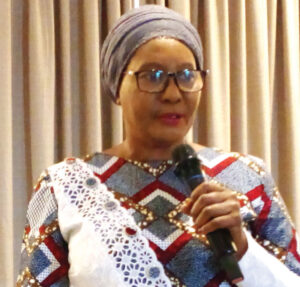By Serah Chilora in Marrakesh, Morocco
Malawi has called on other African countries to work together in dealing with issues of climate change that are affecting food security, the environment and the health in many countries on the continent.

Minister of Agriculture Sam Kawale and Deputy Minister of Health Halima Daudi made the call at the Second African Health Harm Reduction Conference in Marrakesh, Morocco.
They said this during their presentation on the status of food security and measures on health harm reduction.
Kawale said following Cyclone Freddy which hit Malawi in March this year, his ministry has intensified promotion of other food stuffs from the traditional staple grain, maize.
“We are promoting the cultivation of more resilient and nutritious crops that can enhance food security in Africa. We are investing heavily in irrigation systems, for example, the Shire Valley Transformation Program which will be the biggest in Southern Africa, covering over 40,000 hectares, to improve crop production, access to markets and water resources, and storage to reduce post-harvest losses;
“We are encouraging farmers to adopt climate-resilient farming practices such as planting drought-resistant crop and efficient water management and conservation agriculture to mitigate the impact of climate-related challenges,” he said.
Kawale further called on African leaders to collaborate to enhance food security.
He said achieving food security would also be possible through strengthening trade and information sharing.
“What we can all agree on is the fact that food security in Malawi and across the world is a complex issue that requires a multifaceted approach.
“Harm reduction strategies must focus on sustainable and resilient agricultural practices, infrastructure development, and social safety nets, among others. By working together at the national, continental and global levels, we can embrace a shared responsibility to shape the future of food security for generations to come,” he said.
In her remarks, Daud said effects of climate change pose a huge threat on the health. She cited Cyclone Freddy which affected about 14 districts in Malawi and destroyed health infrastructure which affected health service delivery.
“This caused significant disruption to health service delivery and access. It increased disease burden and led to loss of health records.
“However, we are also applying harm reduction measures in ecological context. We are implementing proper disposal of medical wastes through installation of hi-tech incinerators in our health facilities, installing solar electricity in rural health facilities and promotion of vaccines among the population,” she said.
Malawi Health Equity Network (Mhen) Executive Director George Jobe who is also at the conference hailed Malawi for being part of the solution to issues affecting the continent.
“We are part of the community and as such this opportunity was good for Malawi to tap from other countries because problems affecting us are similar,” he said.
The three-day conference which ended Friday brought together leaders from 77 countries and it tackled issues on water, environment and food security.







